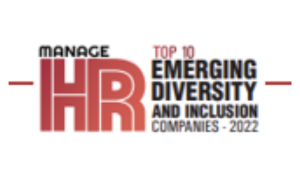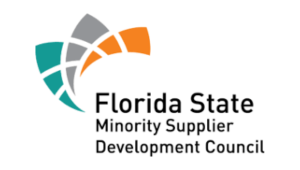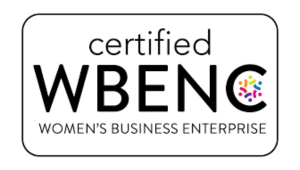One of my volunteer leadership commitments that I treasure is serving on the Education Committee of the American Society for Health Care Human Resources Administration (ASHHRA). ASHHRA leads the way for members to become more effective, valued, and credible leaders in health care human resources. As the foremost resource for health care human resources, ASHHRA provides timely and critical support through research, learning and knowledge sharing, professional development, products and resources, and opportunities for networking and collaboration.
Last month the ASHHRA22 Conference was held in sunny Phoenix, AZ from Sunday, April 24 to Wednesday, April 27, 2022. It is the premier event for healthcare HR professionals across the continuum of care, delivering dynamic keynote speakers, innovative breakout sessions, engaging networking activities, and a variety of opportunities for healthcare HR professionals to connect.
Inclusive Leadership to Create and Sustain Equitable Healthcare Practices
I was pleased to join my friend and colleague Betsy Rodriguez, Senior Vice President, Human Resources, Children’s Hospital Colorado to co-facilitate the ASHHRA22 DE&I Workshop Intensive entitled; Inclusive Leadership and Cultural Competence to Create and Sustain Equitable Healthcare Practices.
Our emphasis was on describing how can healthcare leaders including medical providers demonstrate inclusive practices more effectively to connect with diverse patients, promote more innovative thinking, and help diverse workers reach their potential. We shared what inclusive leadership is, key traits and competencies, and its importance in helping health systems adapt to constant change and thrive.
While you may be confident in your diverse workforce, creating a cohesive collection of teams where everyone is excited to contribute and innovate can be more challenging. Inclusive leadership is powerful. However, few organizations are currently measuring, recognizing, developing, and rewarding it. For example, only 40 percent of executives believe their leadership is held accountable for fostering an inclusive culture and only 35 percent said their leadership considers inclusive behaviors as promotion criteria for leaders, according to Russell Reynolds Associates 2017 Diversity and Inclusion Pulse survey, which asked more than 1,800 leaders globally about their organizations’ D&I strategies and practices.
Mayo Clinic Embraces Inclusive Leadership as a Business Strategy
Inclusion is an important topic that the leaders at Mayo Clinic and leadership development practitioners are deeply passionate about. As advocates and allies, leaders are called to embody inclusivity and invited to join in the learning journey.
The rationale to focus on inclusion as an organizational strategy is embedded in the history of the Mayo Clinic. Mayo Clinic’s founder, Dr. William Worrall Mayo’s eldest son, Dr. William J. Mayo, stated three conditions he believed to be essential for the future success of Mayo Clinic:
- Continued pursuit of the ideal of service and not profit
- Continued primary and sincere concern for the care and welfare of each individual patient
- Continued interest by every member of the staff in the professional progress of every other member
Inclusion is also embedded in the Mayo Clinic 2030 Strategy through the advancement of people, innovation, and the environment with a focus on staff engagement and empowerment of everyone. The Mayo Clinic’s strategic focus is on its patients and staff; attracting, retaining, and appreciating multiple populations and groups because, “when we listen and celebrate what is both common and different, we become a wiser, more inclusive, and better organization.”
Mayo Clinic earned the No. 3 position in DiversityInc’s ‘Top Hospitals and Health Care Systems’ rankings for 2022.
Inclusive Leadership and Health Outcomes Research
Valid and reliable research supports the case for developing inclusive leadership at hospitals and health systems to improve health outcomes. In multiple studies of quality in cardiovascular care, top-performing hospitals have been shown to exhibit the capacity to embrace staff across hierarchies and engage differences through inclusive leadership so that healthcare workers of all kinds feel they can speak up and participate meaningfully in improvement efforts.
Inclusiveness in Health Care Leadership Research: Three Key Steps
There is increasing evidence that greater diversity among healthcare teams is associated with higher performance. The research authors offer three recommendations for health care leaders and their boards: (1) recognize that diversity is necessary but will not, alone, create a just and inclusive culture; (2) be aware that every leader is at risk for blind spots; and (3) appreciate that concepts of leadership and stereotypical traits of leaders among existing leaders may limit efforts for cultural inclusiveness and operational success.
The Urgent Need for Allyship and Belonging in Healthcare
For health providers, the number one priority is making sure your patients receive the best quality of care. However, people are often treated differently based on factors they can’t control.
Allyship in healthcare means advocating for change on behalf of patients and peers to ensure that everyone receives the best level of care. While it may be hard to imagine that you, your coworkers, or your healthcare center are discriminating against a patient, there is an inherent bias against marginalized groups. This systemic health care inequality is why increasing allyship in the workplace and healthcare community is so necessary.
Healthcare inequality also impacts medical decisions made for different patients. A study from 2016 found that many white medical students falsely believed that Black people have higher pain tolerance than white people. This is a dangerous bias that results in Black patients receiving less pain medication or reduced treatment than other patients with the same conditions.
This differing level of care is unfair but can be reduced within your community through support from allies. Along with equal treatment for patients, allyship in healthcare creates more inclusive and diverse organizations and reduces overall stress on the healthcare system.
The Hospital for Sick Children in Toronto developed a foundational allyship workshop to increase awareness and understanding of interpersonal, systemic, and institutional oppression and discrimination in the large pediatric academic center. The workshop emphasizes individual accountability and how to speak up and act against oppression through critical allyship.
In emerging research on the value of belonging in the workplace, University of Virginia scholars Natalie May, Ph.D., and Julie Hazelip, MD, studied behaviors of faculty that engender a sense of inclusion among medical students.
Many organizations that have historically failed to nurture inclusive workplaces are now at a point of reckoning as they struggle with a record exodus of women and people of color from their ranks. Conversely, organizations that invested in intentionally cultivating a culture of belonging well before the calamity of COVID-19 are faring far better.
Angela Theisen, a psychotherapist at Mayo Clinic posits that we cannot separate the importance of a sense of belonging from our physical and mental health. Every aspect of our lives is organized around belonging to something, including our workplace.
Inclusive Leaders: The Catalysts For Allyship and Belonging
In a previous Blog post, I shared how the journey to becoming an inclusive leader starts with self-awareness and education. The goal is to recognize and address your own biases, value diverse thinking, and celebrate different perspectives. Once you do that, you can encourage others at work to do the same.
An inclusive leader who practices allyship and creates a sense of belonging:
- Takes a collaborative approach as opposed to command and control
- Operates transparently rather than behind closed doors
- Is culturally agile, not tied to their own worldview
- Fully embraces the vast diversity of today’s workforce
- Creates a safe space for people to give the best of their talents
 Inclusive Leaders Group, LLC is an award-winning talent & organizational development consulting firm specializing in Diversity, Equity, Inclusion (DEI) strategy and initiatives aligned with business goals. Our senior consultants get the results CEOs want and demand. We specialize in – strategy development, training, people development, and speaking engagements for corporations, nonprofits, and healthcare organizations at all stages of their DEI journey seeking to make DEI a business strategy rather than a compliance matter. We shine when working with organizations new to DEI, evolving from compliance to a business strategy with a multi-year DEI strategic plan with goals, objectives, and metrics. We also excel with organizations seeking to build a Race Equity Culture.
Inclusive Leaders Group, LLC is an award-winning talent & organizational development consulting firm specializing in Diversity, Equity, Inclusion (DEI) strategy and initiatives aligned with business goals. Our senior consultants get the results CEOs want and demand. We specialize in – strategy development, training, people development, and speaking engagements for corporations, nonprofits, and healthcare organizations at all stages of their DEI journey seeking to make DEI a business strategy rather than a compliance matter. We shine when working with organizations new to DEI, evolving from compliance to a business strategy with a multi-year DEI strategic plan with goals, objectives, and metrics. We also excel with organizations seeking to build a Race Equity Culture.
When can we schedule a discovery discussion and give you our presentation to help transform your culture and grow your business? Contact us and let us know.








